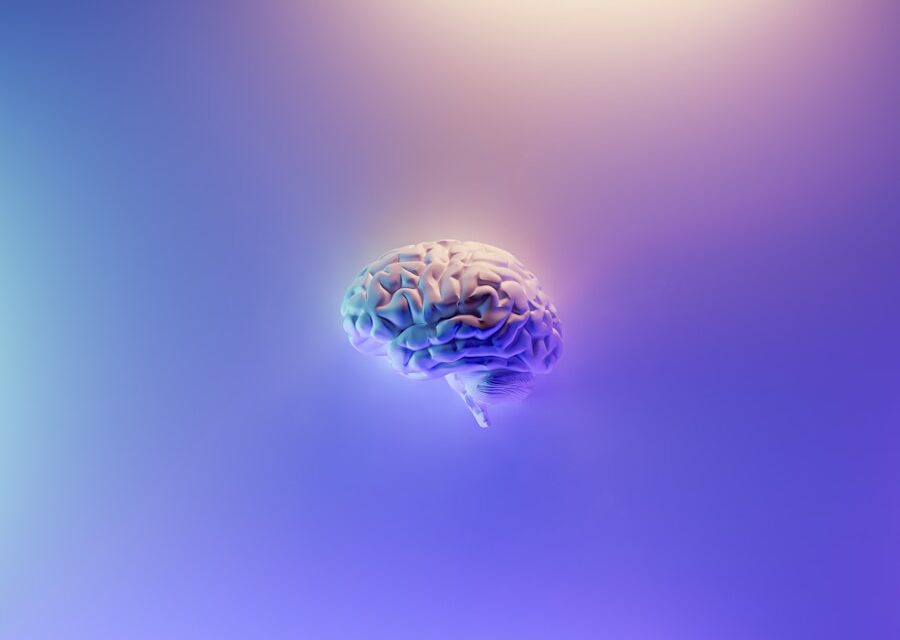Music therapy is a form of therapy that uses music to address physical, emotional, cognitive, and social needs of individuals. It is a well-established and evidence-based therapeutic practice that is used to improve the quality of life for people of all ages. Music therapists are trained professionals who use music interventions to achieve individualized goals within a therapeutic relationship. These interventions can include creating, singing, moving to, and/or listening to music. Music therapy can be used in a variety of settings including hospitals, schools, rehabilitation centers, and community centers.
The goal of music therapy is to help individuals improve their overall well-being by addressing their physical, emotional, cognitive, and social needs. Music therapists use a variety of techniques to achieve this goal, including active music-making, receptive music listening, songwriting, lyric analysis, and music improvisation. The therapist assesses the individual’s needs and creates a treatment plan that is tailored to their specific goals and preferences. Music therapy has been shown to be effective in improving communication, reducing stress and anxiety, enhancing memory and cognitive function, and promoting physical rehabilitation.
The Impact of Music on the Brain: How It Can Affect Neurological Disorders
Music has a profound impact on the brain and can be used as a powerful tool in the treatment of neurological disorders. Research has shown that music can stimulate multiple areas of the brain, including those involved in emotion, memory, and motor function. This makes it an effective therapeutic tool for individuals with neurological disorders such as Alzheimer’s disease, Parkinson’s disease, stroke, and traumatic brain injury. Music therapy has been shown to improve cognitive function, reduce agitation and anxiety, and enhance overall quality of life for individuals with these disorders.
One way in which music affects the brain is through its ability to evoke emotions and memories. Listening to familiar music can trigger memories and emotions in individuals with neurological disorders, which can be particularly beneficial for those with Alzheimer’s disease. Additionally, music can stimulate the release of dopamine in the brain, which can improve mood and reduce symptoms of depression in individuals with Parkinson’s disease. Music therapy can also improve motor function in individuals with neurological disorders by providing rhythmic auditory stimulation, which can help to improve gait and balance.
Music Therapy in Action: Case Studies and Success Stories
There are numerous case studies and success stories that demonstrate the effectiveness of music therapy in the treatment of neurological disorders. One such case study involved a woman with Alzheimer’s disease who had become withdrawn and agitated. After participating in music therapy sessions that involved listening to familiar songs and engaging in music-making activities, the woman showed a significant reduction in agitation and an improvement in mood. Another success story involved a man with Parkinson’s disease who experienced improved gait and balance after participating in rhythmic auditory stimulation sessions as part of his music therapy treatment plan.
In addition to individual case studies, there have been several large-scale studies that have demonstrated the benefits of music therapy for individuals with neurological disorders. A study published in the Journal of Alzheimer’s Disease found that music therapy led to improvements in cognitive function and reduced symptoms of depression in individuals with Alzheimer’s disease. Another study published in the Journal of Neurologic Physical Therapy found that rhythmic auditory stimulation as part of a music therapy treatment plan led to improvements in gait and balance for individuals with Parkinson’s disease.
The Role of Music in Managing Symptoms of Neurological Disorders
Music plays a crucial role in managing symptoms of neurological disorders by addressing a wide range of physical, emotional, cognitive, and social needs. For individuals with Alzheimer’s disease, music can help to reduce agitation and anxiety, improve mood, and stimulate memories. For individuals with Parkinson’s disease, music can improve motor function, reduce symptoms of depression, and enhance overall quality of life. Additionally, music therapy can help individuals with stroke or traumatic brain injury to regain speech and language skills, improve motor function, and enhance social interaction.
One way in which music manages symptoms of neurological disorders is through its ability to stimulate multiple areas of the brain. Listening to music can activate areas of the brain involved in emotion, memory, and motor function, which can lead to improvements in mood, cognitive function, and motor skills for individuals with neurological disorders. Additionally, engaging in music-making activities can provide individuals with a sense of accomplishment and self-expression, which can be particularly beneficial for those who have experienced a loss of independence due to their disorder.
Incorporating Music Therapy into Treatment Plans for Neurological Disorders
Music therapy can be incorporated into treatment plans for neurological disorders in a variety of ways. The first step is for the music therapist to conduct an assessment of the individual’s needs and preferences in order to create a personalized treatment plan. This plan may include a combination of active music-making activities such as singing or playing instruments, receptive music listening activities, songwriting or lyric analysis exercises, and movement-based activities such as dance or rhythmic auditory stimulation.
In addition to individualized music therapy sessions, music can also be integrated into other aspects of the individual’s treatment plan. For example, music can be used as a tool for relaxation and stress reduction during physical therapy sessions for individuals with stroke or traumatic brain injury. It can also be used as a means of enhancing social interaction and communication during group therapy sessions for individuals with Alzheimer’s disease or Parkinson’s disease. By incorporating music therapy into treatment plans for neurological disorders, individuals can experience improvements in physical function, emotional well-being, cognitive function, and social interaction.
Potential Challenges and Limitations of Music Therapy for Neurological Disorders
While music therapy has been shown to be effective in improving the quality of life for individuals with neurological disorders, there are also potential challenges and limitations associated with this form of therapy. One challenge is that not all individuals may respond positively to music therapy interventions due to personal preferences or sensory sensitivities. Additionally, some individuals may have difficulty engaging in music-making activities due to physical limitations or cognitive impairments.
Another potential limitation of music therapy for neurological disorders is the need for ongoing research to further understand its effectiveness and optimal use. While there is a growing body of evidence supporting the benefits of music therapy for individuals with neurological disorders, more research is needed to determine the most effective interventions for specific populations and to identify any potential risks or contraindications. Additionally, there is a need for more standardized training and certification requirements for music therapists in order to ensure that individuals receive high-quality care.
The Future of Music Therapy: Research and Advancements in the Field
The future of music therapy for neurological disorders looks promising as researchers continue to explore its potential benefits and develop new interventions. One area of research that shows promise is the use of technology to enhance music therapy interventions. For example, virtual reality technology can be used to create immersive musical experiences that stimulate multiple areas of the brain and provide individuals with a sense of presence and engagement. Additionally, researchers are exploring the use of neuroimaging techniques such as functional magnetic resonance imaging (fMRI) to better understand how music affects the brain and to tailor interventions to individual needs.
Advancements in the field of music therapy also include efforts to expand access to care for individuals with neurological disorders. This includes developing telehealth platforms that allow individuals to receive music therapy services remotely, as well as integrating music therapy into existing healthcare systems such as hospitals and rehabilitation centers. By expanding access to care, more individuals with neurological disorders can benefit from the therapeutic effects of music.
In conclusion, music therapy is a valuable tool for improving the quality of life for individuals with neurological disorders. It has been shown to have a profound impact on the brain by stimulating multiple areas involved in emotion, memory, and motor function. Through individualized treatment plans that incorporate active music-making activities, receptive music listening activities, songwriting or lyric analysis exercises, and movement-based activities such as dance or rhythmic auditory stimulation, individuals can experience improvements in physical function, emotional well-being, cognitive function, and social interaction. While there are potential challenges and limitations associated with music therapy for neurological disorders, ongoing research and advancements in the field show promise for expanding access to care and developing new interventions that enhance its effectiveness.
Find out how Torongo Therapyplus can help you with your needs. Get in touch with us at smile@torongo.life, or call us on 02 8809 9965.































